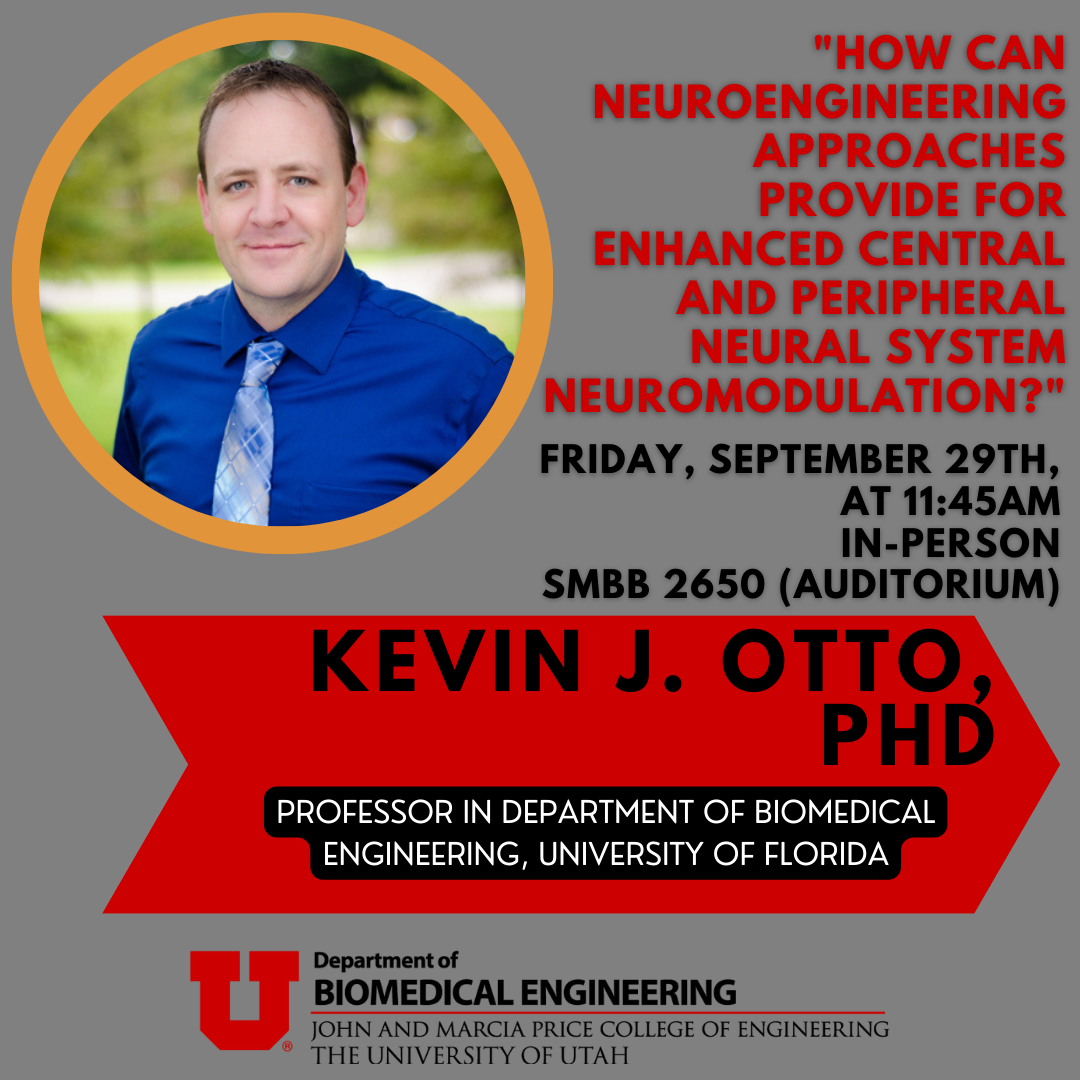Information transfer using a chronically implanted neural interface depends upon the quality of the device-tissue interface. Implanted electrodes offer unique opportunities for device design and performance; however, they can demonstrate challenges in long-term reliability which we seek to address with engineering solutions. Increasingly, high-fidelity neural interfaces are being developed with increasingly smaller electrode site areas; unfortunately, these electrodes can suffer even greater long-term reliability challenges post-implant. Here we will discuss our neuroengineering efforts at the intersection of device development and performance.
Dr. Kevin J. Otto received his BS Degree in Chemical Engineering from Colorado State University in 1997, his MS Degree in Bioengineering in 2002, and his PhD Degree in Bioengineering in 2003 from Arizona State University, Tempe. From 1997 to 2003, he was a Research Assistant in the Bioengineering Department, Arizona State University, where his work was in the areas of neural engineering and sensory neuroprosthetics. From 2003 to 2004 he was a Research Fellow in the Department of Biomedical Engineering, University of Michigan, Ann Arbor where his work focused on brain-machine interface systems and implantable devices. From 2004 to 2006 he was a Post-Doctoral Fellow in the Central Systems Laboratory in the Kresge Hearing Research Institute in the Department of Otolaryngology at the University of Michigan, Ann Arbor where his work focused on cochlear implants. From 2006-2014 he was an Assistant and Associate Professor of Biology and Biomedical Engineering at Purdue University. In 2014 he was recruited as a Preeminent Fellow to the J. Crayton Pruitt Family Department of Biomedical Engineering at the University of Florida, where from 2020-2023 he served as the Senior Associate Chair. He is currently a professor in the same department where he directs the NeuroProstheses Research Laboratory. He is a Fellow of AIMBE and the BMES. His research interests include neural engineering, device-tissue interfaces, and neurostimulation.
Dr. Otto has over 26 years of experience in neural engineering, with over $15M in funding as PI or co-PI. He has published 73 peer-reviewed papers and chapters (h-index = 32), and 3 issued U.S. patents. He has trained 5 post-doctoral engineers and scientists, 50 graduate students, and approximately 115 undergraduates in his laboratory. Dr. Otto currently serves on editorial boards for Bioengineering, AIMS Bioengineering, Techniques in Neurosurgery & Neurology, Bioelectronics in Medicine, and the International Journal of Computational & Neural Engineering. He also serves as a Review Editor for Neural Technology, Neuroprosthetics, Frontiers in Electronics, and Bioelectronic Medicine.
